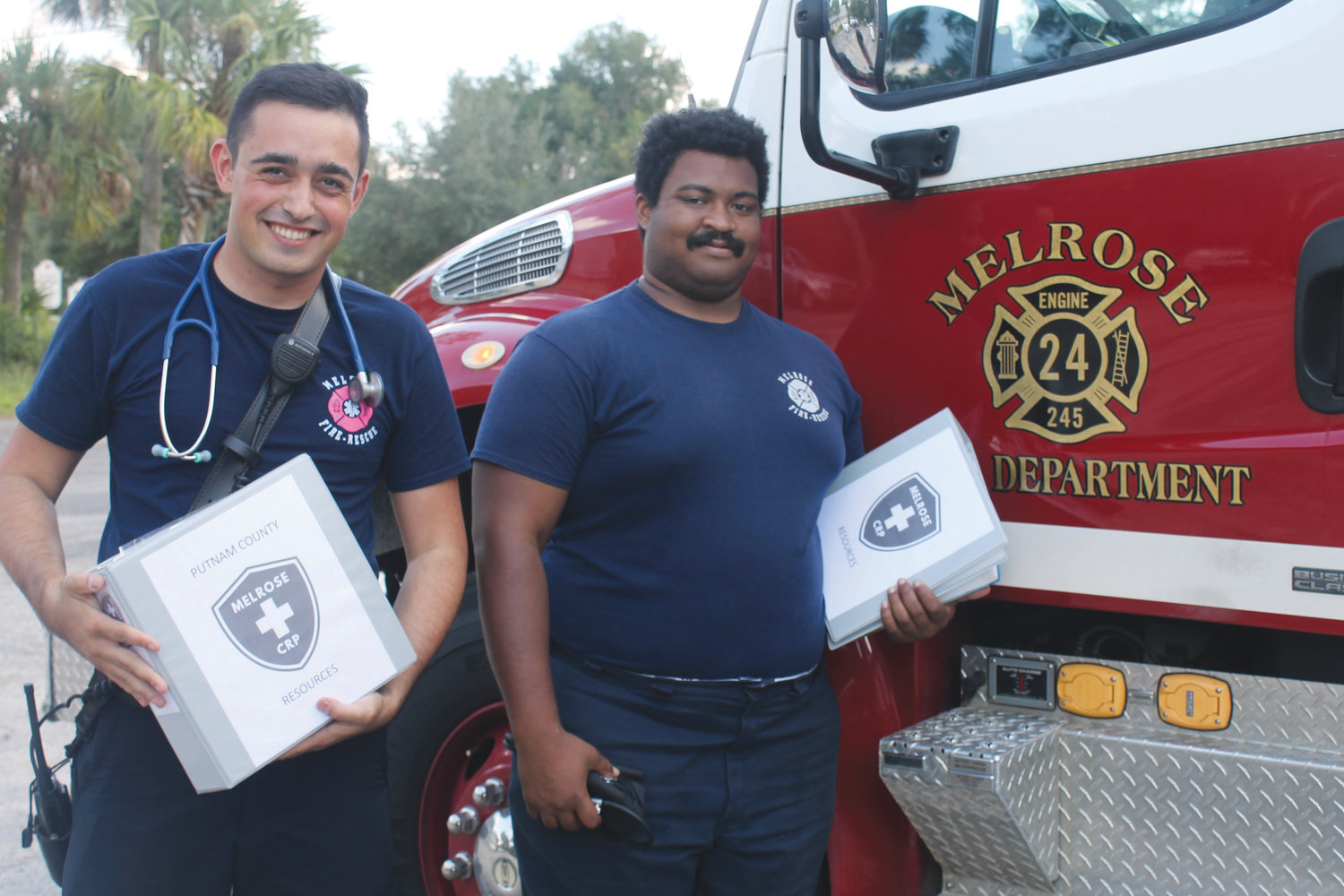A healthy connection …
Melrose Fire Department’s CRP improves rural care
MELROSE – Car crashes, house fires and chest pains make up some of the calls to Melrose Fire Rescue Station 24. So do questions about insurance forms, requesting rides to the doctor and a desperate …
This item is available in full to subscribers.
Attention subscribers
To continue reading, you will need to either log in to your subscriber account, or purchase a new subscription.
If you are a current print subscriber, you can set up a free website account and connect your subscription to it by clicking here.
If you are a digital subscriber with an active, online-only subscription then you already have an account here. Just reset your password if you've not yet logged in to your account on this new site.
Otherwise, click here to view your options for subscribing.
Please log in to continueDon't have an ID?Print subscribersIf you're a print subscriber, but do not yet have an online account, click here to create one. Non-subscribersClick here to see your options for subscribing. Single day passYou also have the option of purchasing 24 hours of access, for $1.00. Click here to purchase a single day pass. |
A healthy connection …
Melrose Fire Department’s CRP improves rural care
MELROSE – Car crashes, house fires and chest pains make up some of the calls to Melrose Fire Rescue Station 24. So do questions about insurance forms, requesting rides to the doctor and a desperate need for human interaction.
“There are trends in fire departments, and somehow fire departments are being used in more ways to help people, especially in a small town,” said fireman Kayvon Yazdanbakhsh.
Melrose is one of the few rural departments in Florida that’s unlocking the benefits of Community Resource Paramedical, a program that provides access to medical services without duplicating existing services. Some rural patients use the 911 system to get their healthcare in non-emergency situations. CRP works proactively to get them answers – and care – before 911 is dialed.
“It’s a movement,” said Yazdanbakhsh, who is the department’s CRP director.
Melrose serves about 6,000 residents in Clay, Alachua, Putnam and Bradford counties. Many lack the knowledge, transportation or money to take care of themselves. That’s where Melrose’s CRP steps in.
Each emergency truck at the station is equipped with a binder with at least 100 pages of information and brochures to answer most questions. If someone can’t find a ride to their doctor or the pharmacy, the firemen can send them to a program at Gainesville’s UF Health that can provide up to three free rides a month.
They also have answers for a variety of common medical questions that used to tie up the town’s 911 system.
Yazdanbakhsh said his station uses “Medical and Psychosocial Aspects of Chronic Illness and Disability” as a guide. It promotes the value of teaching residents how improve their quality of life by adequately caring for themselves.
The department answered about 1,000 calls last year, according to CRP associate director Katherine Roberts, and nearly 600 weren’t considered emergencies.
“A lot of times, it was someone who just had a question,” she said. “Or it may be someone who just wants to talk to someone.”
According to Rural Health Information Hub, the goal is for patients to self-manage their conditions and have the tools to do it. The program serves those with chronic respiratory conditions, diseases, mobility issues, uncontrolled diabetes, mental health, transportation issues, substance abuse and women’s health concerns and those who need pediatric care.
The education component includes helping patients manage their medications, navigate the healthcare system and understand complex diseases and evidence-based approaches to disease management.
To make it happen the Melrose station has “knocked on a lot of doors” and remains eager to speak with community groups. They also provide blood pressure and wellness checks.
“We always get stopped at the grocery,” said Joshua Florence, a CRP associate director. “When someone has a question, they trust the fire department. We know just about everyone in our area. They find us when something goes wrong. We’re on a first-name basis with just about everyone.
“We don’t give out medical advice. We give out information. We may be a little town, but a lot goes on here.”
By being proactive, Yazdanbakhsh said his residents are better-served without making unnecessary emergency calls.
“We still answer calls for heart attacks, car crashes and house fires, but a lot of our calls stem from a lack of care, lack of literacy or a lack of funds,” he said. “We try to connect people with the resources they need. If our residents had this information, a lot of our 911 calls could have been prevented five years ago.”








